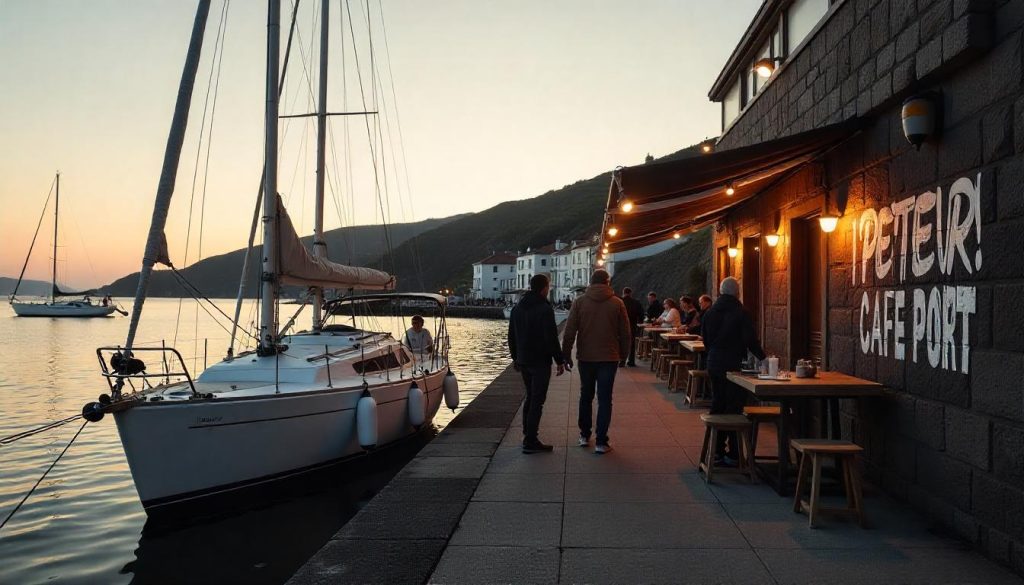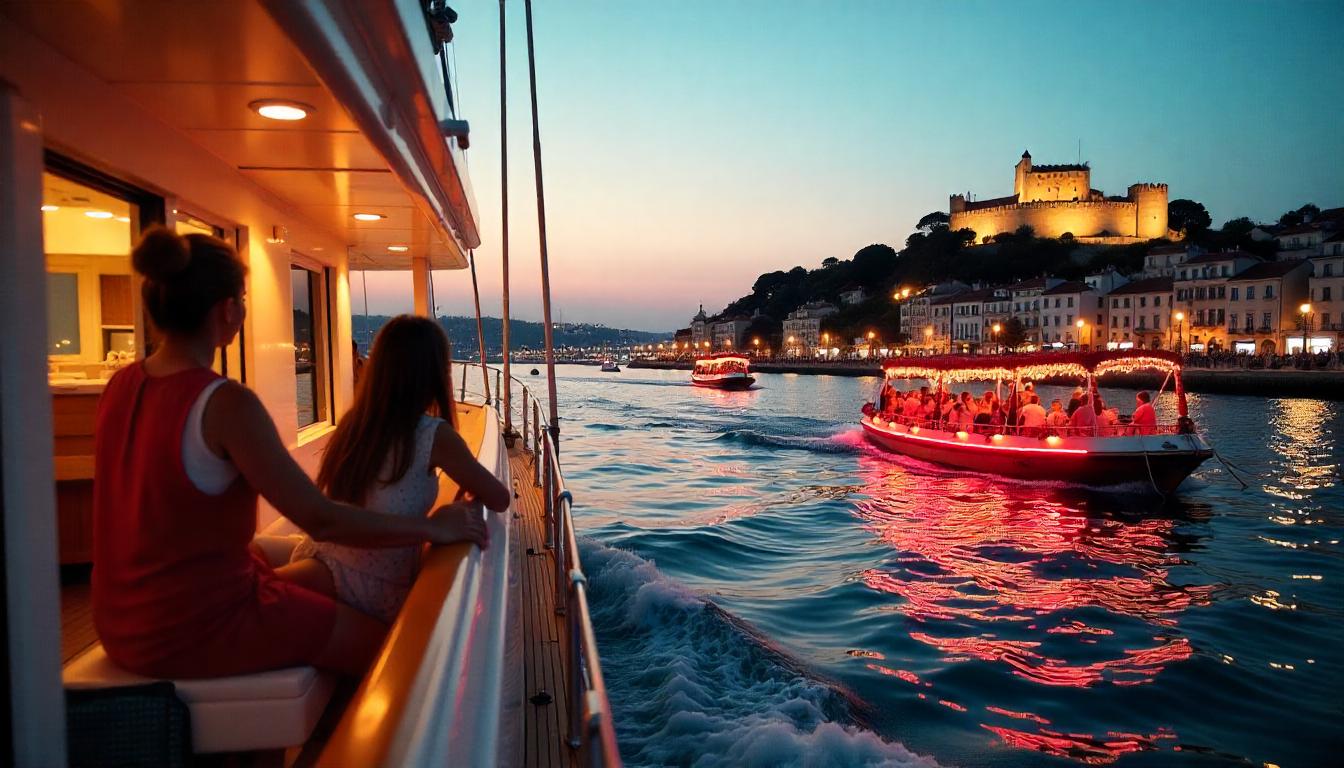Portugal, with its 1,794 km of coastline and a maritime history dating back to the Age of Exploration, has a rich Portugal yachting culture that blends centuries-old traditions with modern trends, making it a top destination for sailors in 2025. From the historic ports of Lisbon to the sun-drenched Algarve, yachting in Portugal is more than a pastime—it’s a way of life rooted in the nation’s seafaring legacy. In this article, we’ll explore the traditions, modern developments, and cultural elements that define Portugal yachting culture, offering insights into its past and present.
The Roots of Portugal Yachting Culture
Portugal yachting culture traces its origins to the 15th century, when explorers like Vasco da Gama and Henry the Navigator set sail from ports like Sagres and Lisbon, charting new routes across the globe. For instance, the School of Navigation in Sagres, established in the 1400s, was a hub for maritime innovation, teaching sailors celestial navigation and shipbuilding techniques. Moreover, traditional wooden boats, like the moliceiro used in Aveiro for seaweed harvesting, reflect the practical roots of Portugal’s maritime heritage. Consequently, these historical practices laid the foundation for the country’s yachting traditions.
Traditional Boats in Portugal Yachting Culture
Traditional boats are a cornerstone of Portugal yachting culture. For example, the rabelo boat, historically used to transport port wine down the Douro River, is still celebrated in Porto’s annual Rabelo Boat Regatta, a free event held every June. Additionally, the cacilheiro ferries, painted in bright yellow, have been crossing the Tagus River in Lisbon since the 19th century, with fares at $2 per trip, connecting communities and symbolizing the city’s reliance on the sea. Transitioning to festivals, these boats often feature in local celebrations, showcasing Portugal’s deep connection to its maritime past. Thus, traditional vessels remain a vital part of the country’s yachting identity.
Maritime Festivals in Portugal Yachting Culture
Maritime festivals are a vibrant expression of Portugal yachting culture, celebrating the sea through regattas, parades, and feasts. For instance, the Santos Populares festival in Lisbon, held every June, features sardine grills along the Tagus River, with free street parties and boat parades where locals decorate their vessels with flowers. Also, the Festival of São Gonçalo in Lagos, held in June, includes a procession of boats to the sea, blessing the waters for a safe sailing season—a tradition dating back centuries. Transitioning to the Azores, the Sea Week festival in Horta, Faial, in July, offers free sailing events and concerts, drawing yachters from across the Atlantic. Therefore, these festivals highlight the communal spirit of Portugal’s yachting traditions.
The Role of Regattas in Portugal Yachting Culture
Regattas are a key tradition in Portugal yachting culture, blending competition with celebration. For example, the Volvo Ocean Race, which often stops in Lisbon, attracts global sailors and spectators, with free public viewing areas along the Tagus. Next, the Sagres Tall Ships Race, held every few years, features historic vessels racing along the coast, with entry fees for participants at $500 per boat, but free for onlookers. Transitioning to local events, the Ria Formosa Regatta in Faro, held in August, showcases traditional boats racing through the lagoon, a free event that draws families to the waterfront. Thus, regattas are a dynamic way to experience Portugal’s yachting heritage.
Modern Trends in Portugal Yachting Culture
While traditions remain strong, modern trends are shaping Portugal yachting culture, reflecting global influences and technological advancements. For starters, eco-friendly yachting is on the rise—marinas like Marina de Lagos now offer electric charging stations, with a $10 fee per charge, supporting hybrid yachts. Moreover, digital navigation tools, like the Navionics app costing $50 per year, are widely used by yachters to chart routes along Portugal’s coast, from Porto to the Azores. Consequently, these innovations are making yachting more sustainable and accessible, blending seamlessly with Portugal’s maritime traditions.
Luxury Yachting in Portugal Yachting Culture
Luxury yachting is a growing trend in Portugal yachting culture, catering to high-end travelers seeking exclusive experiences. For instance, chartering a luxury yacht in Cascais, like a 60-foot Sunseeker, costs $5,000 per day, including a crew and gourmet meals featuring local seafood like катаплана. Also, the Douro River now offers luxury cruises, with 3-day trips costing $2,000 per person, including wine tastings at vineyards like Quinta do Crasto, where a bottle of vintage port costs $50. Transitioning to events, the Portugal Match Cup in Cascais, held in September, attracts elite sailors, with free viewing for spectators. Therefore, luxury yachting adds a modern flair to Portugal’s sailing scene.
Coastal Cuisine in Portugal Yachting Culture
Coastal cuisine is an integral part of Portugal yachting culture, with fresh seafood and local flavors enhancing the sailing experience. For example, in the Algarve, yachters can enjoy a кальдейрада—a fish stew—at Restaurante O Costa in Faro for $15 per person, often paired with a glass of Vinho Verde costing $5. Next, in Lisbon, бакалхау а брас—codfish with eggs—is a staple at waterfront tascas, costing $12 per person, reflecting the city’s fishing heritage. Transitioning to the Azores, лапас грелхадас—grilled limpets—are a delicacy in Horta, costing $12 at Peter Café Sport, a sailor’s hangout. Thus, cuisine ties yachters to Portugal’s coastal traditions.
Pairing Wine with Yachting in Portugal Yachting Culture
Wine pairing is a cherished aspect of Portugal yachting culture, especially with the country’s renowned wine regions. For instance, while anchored off Porto, yachters can enjoy a glass of port wine, like Taylor’s 20-year tawny costing $10 per glass, with a sunset view of the Douro River. Also, in the Algarve, a bottle of Algarve white wine, like Quinta do Barranco Longo at $15, pairs perfectly with a seafood lunch onboard. Transitioning to Madeira, the island’s fortified wine, such as Blandy’s 10-year Malmsey at $20 per bottle, is a favorite for yachters anchoring off Funchal. Therefore, wine enhances the cultural experience of yachting in Portugal.

Community and Camaraderie in Portugal Yachting Culture
Community and camaraderie are at the heart of Portugal yachting culture, fostering connections among sailors and locals. For example, in Horta, Faial, the tradition of painting murals on the marina walls at Marina da Horta, a free activity, creates a sense of shared history among transatlantic yachters. Additionally, in Nazaré, locals often invite yachters to join beachside sardine grills during summer, a free communal event that builds friendships. Transitioning to modern trends, online forums like the Portugal Yachting Group on social platforms, with free membership, connect sailors to share tips and plan meetups. Thus, the yachting community in Portugal thrives on shared experiences.
Sailor’s Tales in Portugal Yachting Culture
Sailor’s tales are a beloved tradition in Portugal yachting culture, passed down through generations at waterfront bars. For instance, at Peter Café Sport in Horta, yachters gather over a $5 gin and tonic to share stories of crossing the Atlantic, a tradition dating back to the 19th century. Also, in Sagres, older fishermen at the harbor recount tales of navigating by the stars, often over a $3 coffee, inspiring younger sailors. Transitioning to modern platforms, podcasts like “Sailing Portugal,” available for free on Spotify, feature interviews with yachters sharing their adventures. Therefore, storytelling keeps Portugal’s maritime spirit alive.
Practical Tips for Experiencing Portugal Yachting Culture
A few tips can help you fully experience Portugal yachting culture. First, learn basic Portuguese phrases—saying “obrigado” (thank you) at a local tasca in Lagos can enhance your interactions, and language apps like Duolingo are free. Next, bring a camera—festivals like Santos Populares in Lisbon offer vibrant photo opportunities, and a good camera costs $200. Also, pack traditional sailing gear—oilskin jackets, costing $50, are still used by local fishermen in Nazaré and keep you dry in summer showers.
Timing Your Yachting Experience
Timing can enhance your cultural experience. For instance, visit in June to join the Santos Populares festival in Lisbon, where the Tagus River comes alive with boat parades and free street parties. Transitioning to the Algarve, August is ideal for the Ria Formosa Regatta in Faro, a free event showcasing traditional boats. Also, September in Cascais offers the Portugal Match Cup, with free viewing of luxury yacht races. Therefore, timing your trip aligns with cultural events, enriching your yachting journey.
The Cost of Experiencing Portugal Yachting Culture
A 7-day yachting trip to experience Portugal’s culture for four people includes a yacht charter at $3,500, or $875 per person. Mooring fees average $65 per night for three nights in Lisbon, Lagos, and Horta, totaling $195, with four nights anchoring for free in Nazaré and Ria Formosa. Fuel for 100 nautical miles costs $200, and meals at local tascas average $15 per person daily, or $420 for four. Cultural activities like museum visits ($3) and wine tastings ($10) total $52 per person. Total: about $4,367 for four, or $1,092 per person.
Поради щодо економії бюджету
Save by anchoring in free spots—staying off Nazaré and Ria Formosa saves $130 compared to mooring in Faro or Nazaré. For example, a free anchorage in Porto Pim Bay avoids fees entirely. Also, eat at local markets—ingredients for a seafood stew in Funchal cost $15 for four, versus $60 at a restaurant. Transitioning to activities, opt for free events like the Rabelo Boat Regatta in Porto or beachside grills in Nazaré. Thus, smart budgeting keeps your cultural experience affordable.
Challenges of Engaging with Portugal Yachting Culture
Engaging with Portugal yachting culture can present challenges. First, language barriers may arise—while many in tourist areas speak English, rural spots like São Jorge require basic Portuguese, so a phrasebook, costing $10, helps. Additionally, peak season (July-August) means crowded festivals—Santos Populares in Lisbon can draw thousands, so arrive early for a good spot. Also, traditional events may have limited schedules—the Ria Formosa Regatta is only in August, requiring planning. However, these issues can be managed.
Overcoming Cultural Challenges
Learn basic Portuguese before your trip—apps like Duolingo, which are free, can teach you essentials in a month. For crowds, visit in June or September—festivals like São Gonçalo in Lagos are less busy, and you’ll enjoy a more intimate experience. For event timing, check local calendars online—Visit Portugal’s website, which is free, lists festival dates. Transitioning to solutions, you can fully immerse yourself in Portugal’s yachting culture. Thus, preparation ensures a seamless cultural journey.
Why Explore Portugal Yachting Culture?
Portugal yachting culture offers a rich tapestry of traditions and modern trends, from historic boats to luxury charters, providing a deep connection to the country’s maritime heritage for sailors. The blend of festivals, cuisine, and community makes it a top destination for yachters seeking a cultural experience. Whether you’re joining a regatta in Sagres or sharing tales in Horta, Portugal delivers. For a culturally immersive sailing journey, this is the place. Therefore, Portugal yachting culture is a sailor’s delight.
A Cultural Journey Through Yachting in Portugal
Every experience deepens your connection to Portugal. For instance, watching the Rabelo Boat Regatta in Porto feels like stepping into history. Or, tasting лапас грелхадас in Horta ties you to the Azores’ traditions. This variety ensures a memorable journey. Thus, Portugal yachting culture is an experience you’ll cherish.
Final Thoughts on Portugal Yachting Culture
Portugal yachting culture lets you experience the country’s maritime soul, from ancient traditions to modern innovations, with every stop offering a new story. With careful planning, an open mind, and a love for the sea, you’ll create a sailing trip that’s both enriching and inspiring. So, set sail, embrace the culture, and let Portugal’s coast captivate you—one wave at a time.

 Яхтова культура Португалії: Традиції та сучасні тенденції">
Яхтова культура Португалії: Традиції та сучасні тенденції">
